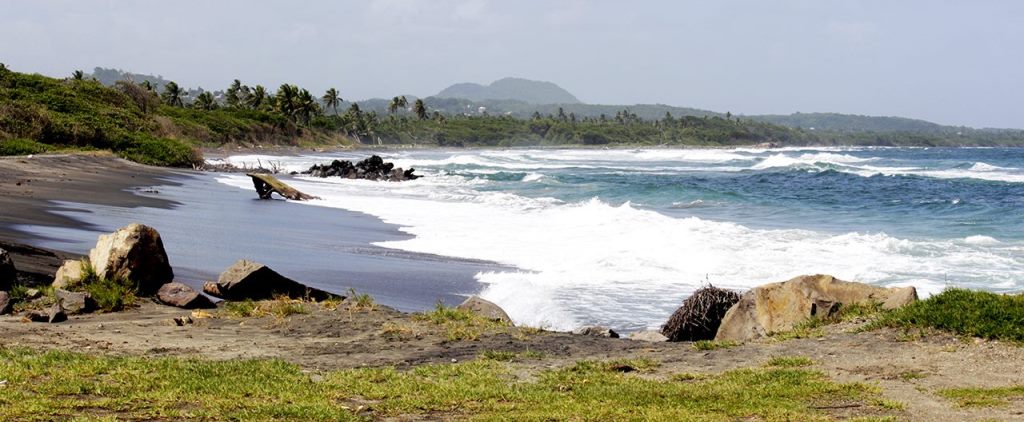Following one of the most devastating hurricane seasons in recent history, a four-year initiative launched to help Caribbean islands prioritize and invest in natural ecosystems that reduce their risks from climate related disasters.
The Resilient Islands project, led by The Nature Conservancy and the International Federation of the Red Cross and Red Crescent Societies (IFRC), combines cutting-edge conservation science with the world’s leading expertise in disaster response to develop tools and test solutions that use nature to protect communities in the Dominican Republic, Grenada and Jamaica.
While islands continue to recover, the region is reaffirming its commitment to climate adaptation and seeking ways to protect coastal areas from flooding, erosion and other impacts which disproportionately put small islands in danger. “The use of biodiversity and coastal ecosystems to help people adapt to climate change is an urgent priority that must be embedded into national and regional tools, policy and planning,” said Eddy Silva, Project Manager from the Conservancy.
With funding from the International Climate Initiative and under the German Federal Ministry for the Environment, Nature Conservation and Nuclear Safety’s (BMU), the project will incorporate ecosystem-based adaptation into tools used to assess vulnerability and add island-specific data to an award-winning interactive mapping website. Other aspect of the project consists in developing a mobile app to help visualize how ecosystems reduce risks.
For example, maps will allow users to calculate the physical protection provided by healthy reefs or mangroves under possible flooding scenarios and select habitat for restoration.
Ecosystems, like reefs and mangroves, are gaining recognition as national resources worthy of investment. These habitats support fisheries, attract tourists, and physically protect beaches from erosion and flooding. A healthy reef reduces wave energy by up to 97%, and just 100 meters of mangroves can reduce wave height by 66%. These numbers are significant in a region where the majority of homes, roads and businesses are located along the coast.
“Our understanding of the extent of climate change continues to evolve and with that so is our methodology,” said IFRC Project Manager, Marisa Clarke-Marshall. “We are expanding our strategies to include nature-based solutions and redefining how we think about resilience and disaster preparedness.”
“The International Climate Initiative funding, made available by the government and people of Germany, recognizes that Caribbean islands states are among the most vulnerable when it comes to the negative and even destructive influence of adverse climate phenomena,” said Mr. Helmut Domas, Chargé d’ Affairs a.i. German Embassy in Kingston, Jamaica.
Specific interventions have already been selected by community and government stakeholders in Grenada under the At the Water’s Edge project, including a climate-smart fisher facility, water quality remediation, and environmental education. These activities complement extensive mangrove restoration and the installation of engineered reef structures that reduce wave energy, two previously successful nature-based solutions that are replicable in vulnerable islands throughout the world.
In the Dominican Republic and Jamaica, project partners will collaborate with local government ministries and Red Cross societies to complete vulnerability assessments and identify communities with which to develop a portfolio of nature-based solutions that reduce their specific risks and build local resilience.
“I am pleased this project will be working closely with coastal communities and agencies to design tools, reduce vulnerability, and improve adaptability. This hands-on approach will help targeted communities think, plan and act to ensure resilience and seize opportunities to integrate climate considerations into their communities, businesses and lives in a transformative way,” said the Honorable Daryl Vaz, Jamaican Minister without Portfolio in the Ministry of Economic Growth and Job Creation.
Resilient Islands is a four-year initiative to help Caribbean islands cope with the impacts of climate change by promoting ecosystem-based solutions that protect and restore coastal habitats proven to reduce risks. The project provides communities and governments with the tools and training to integrate nature-based interventions into existing and future policy and community planning, in order to reduce vulnerability and build resilience against the escalating threats of climate change.
Ultimately, Resilient Islands will help create resilient Caribbean communities and governments that are empowered to significantly increase investments in the protection and restoration of critical ecosystems to meet climate adaptation, risk reduction and sustainable development goals.
Photo courtesy of IFRC.
See Resilient Islands page on The Nature Conservancy website.

